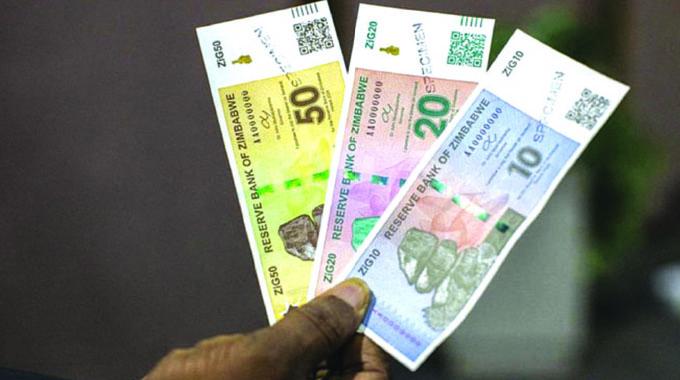News / National
World Bank says Zimbabwe needs economic stability to advance debt talks
17 Sep 2024 at 05:52hrs |
0 Views

Zimbabwe needs an uninterrupted period of macroeconomic stability of at least 12 months to help advance debt talks with international creditors over $21 billion it owes, the World Bank said.
Having a stable economy for that period "would do wonders in moving the dialog forward" and even help in the short term with stabilization," Victor Steenbergen, senior country economist for Zimbabwe at the World Bank, told delegates Monday at an economic summit hosted by nation's Treasury in the resort city of Victoria Falls.
"We really think here that fiscal policy can be the anchor for macroeconomic stability."
The nation has had multiple currencies, bouts of hyperinflation because of poor economic policies and been locked out of international capital markets since 1999 after it defaulted on its debts. Unable to meet its obligations, interest payments have ballooned. In 2022 it solicited the help of Akinwumi Adesina, the African Development Bank president and Joaquim Chissano, the former Mozambique leader to lead restructuring talks with creditors.
The country's creditors include the World Bank, Paris Club, European Investment Bank and the AfDB.
The fundamental challenge which is driving macroeconomic instability is the need to pay for some of the external liabilities, Steenbergen said. "There is a need for broader restructuring," he said. "The World Bank and others acknowledge that currently Zimbabwe's debt situation is unsustainable."
The World Bank said it supports arrears clearance and debt resolution talks with traditional lenders including the Paris Club, multilaterals and even new creditors.
The nation is currently facing renewed exchange rate turmoil. The ZiG, short for Zimbabwe Gold - the country's sixth attempt at a functioning currency in 15 years - is on its longest losing streak against the US dollar since it started trading on April 8 and almost 3% lower at 13.96.
On the parallel market the local unit sells for between 16 and 26 per greenback, according to ZimPriceCheck, a website that monitors both official and unofficial rates.
The currency's slump has prompted the Reserve Bank of Zimbabwe Governor John Mushayavanhu to double down on efforts to crackdown on the parallel market.
Having a stable economy for that period "would do wonders in moving the dialog forward" and even help in the short term with stabilization," Victor Steenbergen, senior country economist for Zimbabwe at the World Bank, told delegates Monday at an economic summit hosted by nation's Treasury in the resort city of Victoria Falls.
"We really think here that fiscal policy can be the anchor for macroeconomic stability."
The nation has had multiple currencies, bouts of hyperinflation because of poor economic policies and been locked out of international capital markets since 1999 after it defaulted on its debts. Unable to meet its obligations, interest payments have ballooned. In 2022 it solicited the help of Akinwumi Adesina, the African Development Bank president and Joaquim Chissano, the former Mozambique leader to lead restructuring talks with creditors.
The country's creditors include the World Bank, Paris Club, European Investment Bank and the AfDB.
The World Bank said it supports arrears clearance and debt resolution talks with traditional lenders including the Paris Club, multilaterals and even new creditors.
The nation is currently facing renewed exchange rate turmoil. The ZiG, short for Zimbabwe Gold - the country's sixth attempt at a functioning currency in 15 years - is on its longest losing streak against the US dollar since it started trading on April 8 and almost 3% lower at 13.96.
On the parallel market the local unit sells for between 16 and 26 per greenback, according to ZimPriceCheck, a website that monitors both official and unofficial rates.
The currency's slump has prompted the Reserve Bank of Zimbabwe Governor John Mushayavanhu to double down on efforts to crackdown on the parallel market.
Source - Bloomberg
Join the discussion
Loading comments…





























